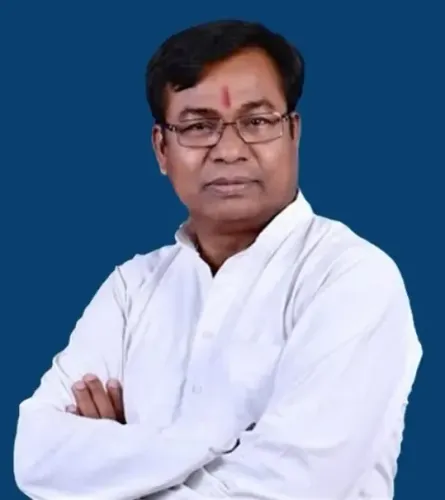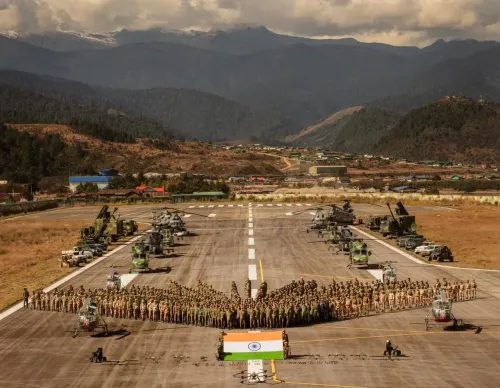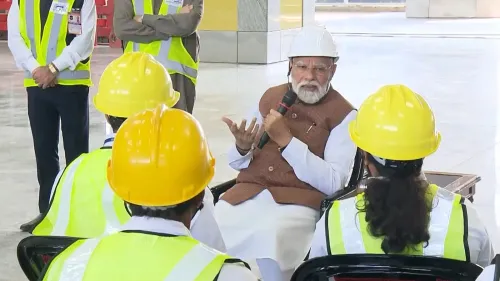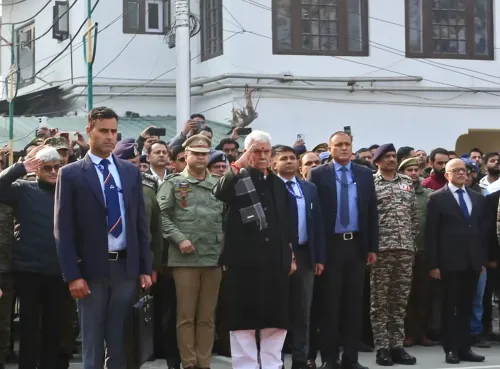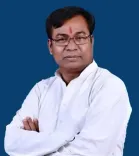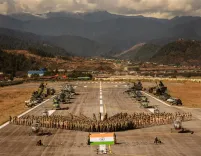Will HM Amit Shah Lead Key Discussions at the Northern Zonal Council Meeting in Faridabad?
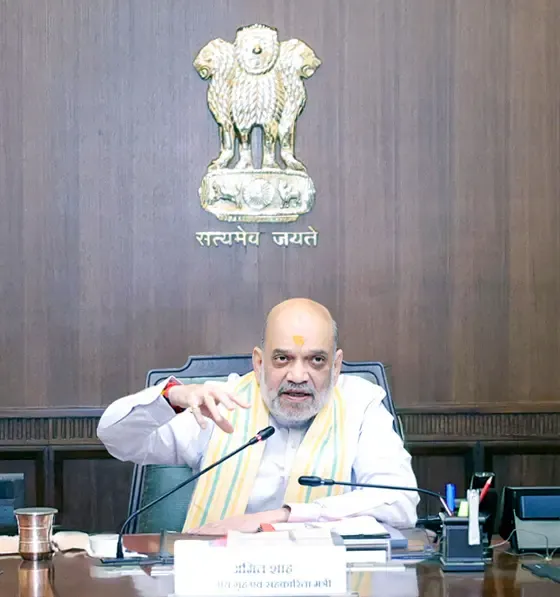
Synopsis
Key Takeaways
- Union Home Minister Amit Shah will chair the Northern Zonal Council meeting.
- Discussions will focus on women's safety and judicial processes.
- The council includes multiple northern states and union territories.
- Regional development issues will be addressed.
- Senior officials from government bodies will participate.
New Delhi, Nov 16 (NationPress) Union Home Minister Amit Shah is poised to spearhead discussions on vital matters affecting both states and the Centre during the 32nd assembly of the Northern Zonal Council in Faridabad, Haryana on Monday, as reported by an official.
Under the leadership of HM Shah, this meeting is expected to address significant national issues, such as the fast-tracked investigation of sexual offences against women and children and the establishment of Fast Track Special Courts (FTSC) to ensure their expedited resolution.
Other pertinent topics to be discussed might include the provision of essential banking services in every village, the rollout of the Emergency Response Support System (ERSS-112), and various regional common interests such as enhancing nutrition, education, health, electricity, urban planning, and the cooperative system, according to a statement issued on Sunday.
The Northern Zonal Council includes the states and union territories of Haryana, Himachal Pradesh, Punjab, Rajasthan, Delhi, Jammu and Kashmir, Ladakh, and Chandigarh.
Senior officials from the Government of India and state governments, along with representatives from union territories, are also set to take part in the meeting, presided over by HM Shah.
This crucial meeting on Monday is being organized by the Inter-State Council Secretariat, Ministry of Home Affairs, with the Haryana government acting as the host.
The Union Home Minister serves as the chairperson of the Northern Zonal Council, while Nayab Singh Saini, the Chief Minister of Haryana, is the vice-chairperson.
The advisory role of the Zonal Councils has been instrumental in fostering healthy relationships and cooperation across various sectors over the years.
The establishment of five Zonal Councils, including the Northern Zonal Council, was formalized under Sections 15 to 22 of the States Reorganisation Act of 1956.
With collaborative efforts from all state governments, Central ministries, and departments, a total of 63 meetings of various Zonal Councils and their permanent committees have been convened in the past 11 years, as stated.
The Zonal Councils serve as a platform for addressing and advancing issues and disputes between the Centre and the Member States/UTs, as well as among the Member States/UTs within the zone.

